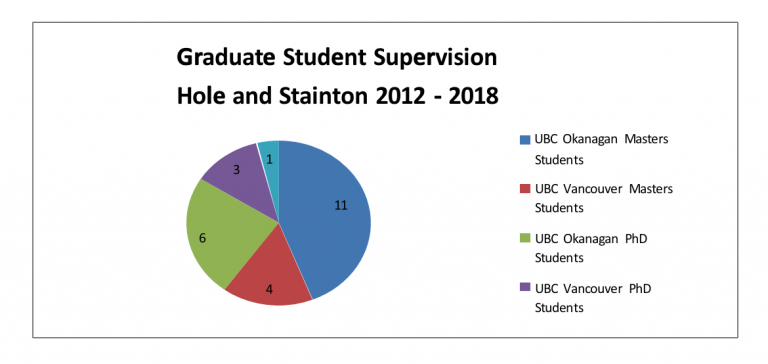CIIC Work Learn Positions Available
The CIIC actively engages UBC students in our work. Our physical presence at both UBC campuses has increased our ability to attract students and resulted in us having access to a large pool of graduate students with training in the latest research methods.
We have extensive experience in quantitative, qualitative, and community-based participatory research methods. The CIIC also has widespread linkages with other research units with relevant expertise across the world and will continue to build them.
In addition to their important contributions to the work of the CIIC, providing mentorship to undergraduate and graduate students in the area of I/DD provides important recruitment and training for future careers in the community living sector in areas such as policy, practice, and research. Through the work of the CIIC, numerous undergraduate and graduate student trainees have been supported through training, supervision, funding, and mentorship.
Since 2009, Drs. Hole and Stainton have supervised 25 graduate students working in the area of I/DD often participating across campuses on graduate supervisory committees.

In addition to graduate supervision, supervision for social work practicum students has also been provided as have mentorship opportunities for undergraduate and graduate research assistants (some subsidized by the UBC work study/work learn program).
Of note, the CLBC studentships were a unique success funded by a close partner, CLBC – the Crown Corporation responsible for supports and services for adults with I/DD and their families in BC. With support from Community Living British Columbia, the Institute was able to offer studentships for BSW and MSW level students at UBC interested in working in the field of I/DD. The awards encouraged students to consider a career in the area of community living upon completion of their degrees and support the development of professionals with both commitment to and expertise in fostering the inclusion and citizenship of people with I/DD in British Columbia. The students completed their work experience placements at CLBC and contributed additional hours working with the Centre. Every student who received this award in 2009-2014 accepted employment in the field.
We look forward to expanding our capacity (e.g., increased visibility, increased research streams and faculty, and increased infrastructure) to attract and support more top graduate and postdoctoral research trainees.